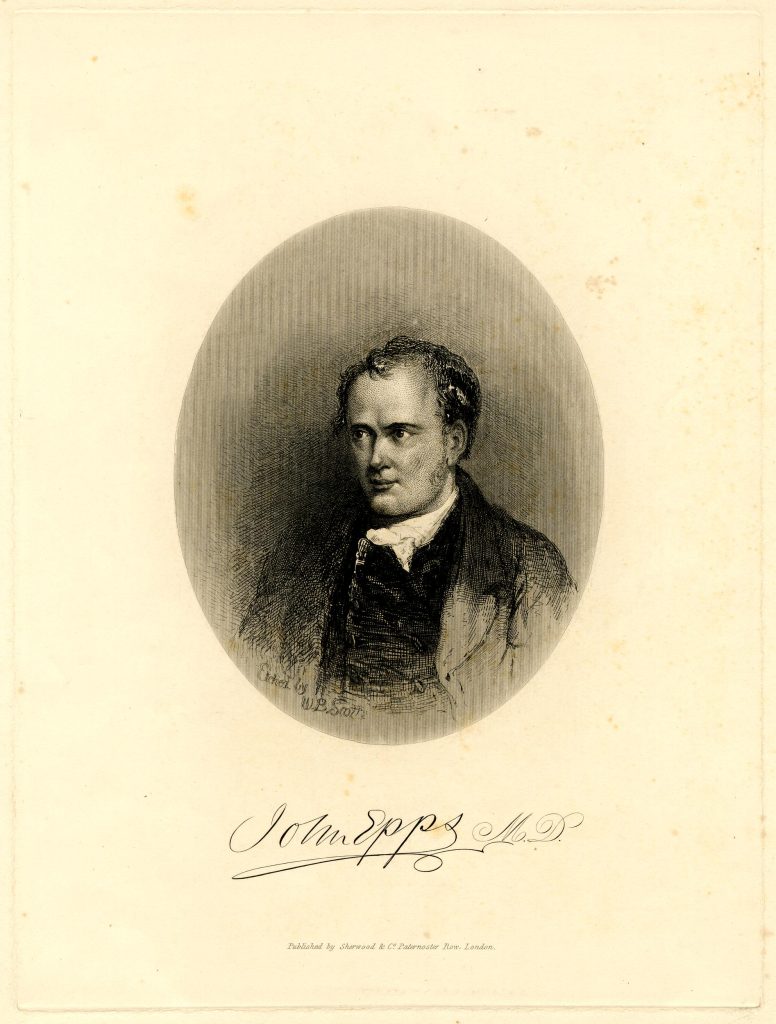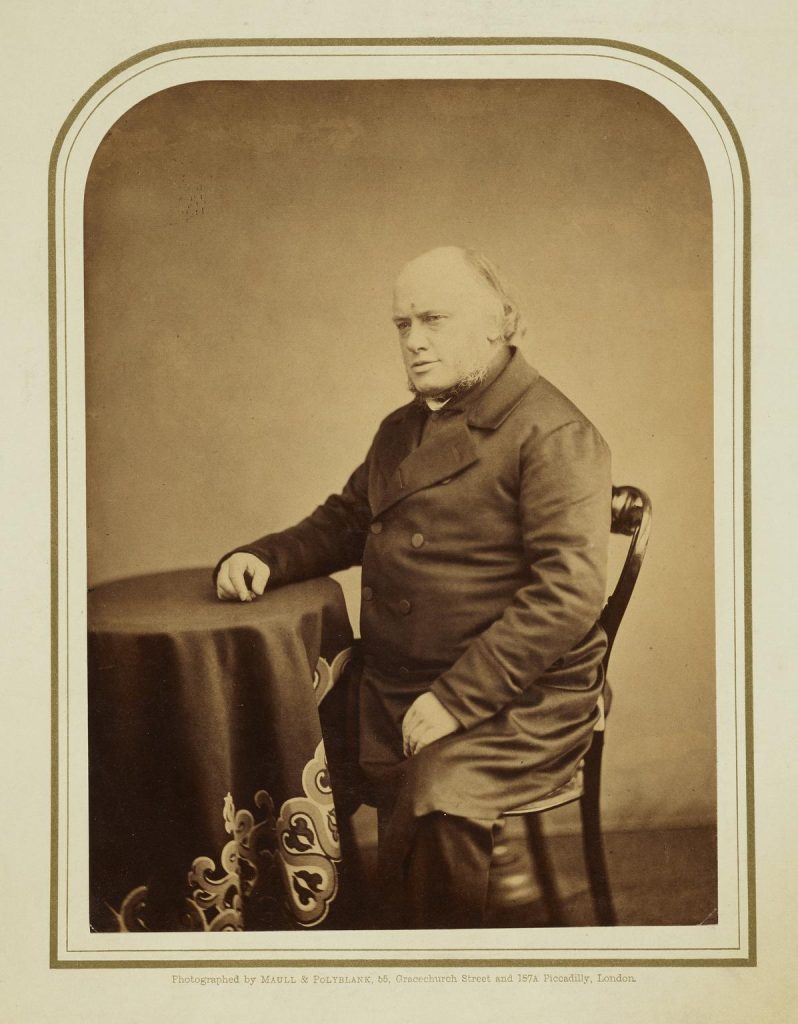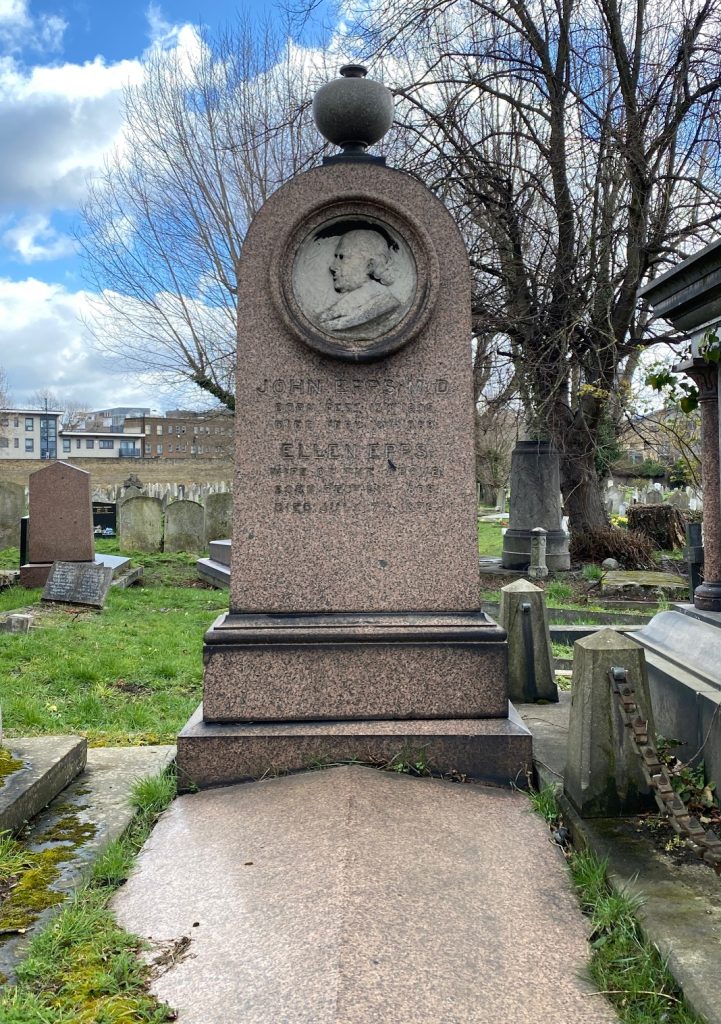John Epps, 1805 – 1869
A dissenter in his views on religion, politics and medical matters, Dr John Epps was a member of the London Working Men’s Association and continued to work in the cause of reform throughout and after the Chartist period.
John Epps was born on 5 February 1805 at Blackheath and brought up near Sevenoaks in Kent. The youngest child and only son of comfortably off middle-class parents, he lost his mother at a young age; but his father’s remarriage brought further younger siblings, and Epps appears to have had a fairly happy childhood.

From his time at boarding school, he acquired an enduring distaste for established religions. Later, as a teenager, he served an apprenticeship to an apothecary, and aged 18 he enrolled to study medicine at the University of Edinburgh. Epps’ medical education introduced him first to phrenology, and later to homoeopathy, both of which he adopted with enthusiasm. Convinced that intellectual effort could help develop the size and shape of the brain, he would ever afterwards claim that a series of three casts of his own head taken over time showed the effect of his studies of botany in reshaping his skull.
Epps returned to London in 1827 to practice medicine, settling in Great Russell Street and combining his work, often among the poor, with lectures on a wide range of scientific and pseudo-scientific topics. He was an early supporter of the radical and medical reformer Thomas Wakley’s proposal for a London College of Medicine, but fell out with him when Wakley refused to publish his case reports on homoeopathy in The Lancet.
Epps came to know Francis Place, William Lovett and other political reformers in the 1830s, and was later elected as one of the London Working Men’s Association’s honorary middle-class members. Although he supported Lovett after his arrest and imprisonment following the First Chartist Convention, Epps was alienated by growing support for physical force measures within Chartism and by its supporters’ insistence that the campaign for the Charter should always take precedence over other causes.
For Epps, the vote was one of a wide range of enthusiasms, from the abolition of church rates, to the repeal of the corn laws, and the causes of Polish, Italian and Hungarian nationalism. He also wrote a number of books setting out his views, including a religious text arguing controversially against the existence of the devil, an introduction to botany, and Evidences of Christianity Deduced from Phrenology, while also publishing and editing the Christian Physician and Anthropological Magazine.
A later biographer noted: ‘Epps was of short stature and sturdy frame, and had a beaming, self-confident expression. He was regarded by many of the working classes as a prophet in medicine, and, although neither profound nor original, he impressed many people with the idea that he was both, owing to his great earnestness and confidence in his own views, and his evident desire to benefit his fellow-creatures. He had a great command of words, a fine sonorous voice, and an animated manner. His philanthropic efforts and personal acts of kindness were numberless.’1

In 1842, Epps was involved with leading middle-class radicals including Francis Place, Joseph Sturge and Joseph Hume in setting up the Metropolitan Parliamentary Reform Association as a would-be rival to the National Charter Association, but it failed to win support and was wound up within a year. Epps remained politically active as a supporter of the Dissenters Parliamentary Committee, and in the general election of 1847 was persuaded by friends to put himself forward as a candidate at Northampton. A report of the hustings in the Daily News (29 July, 1847) has him denouncing ‘the injustice of a State Church’ and advocating shorter parliaments, complete suffrage and the ballot.
The National Charter Association had been optimistic about that year’s election, and had given its support to a rag-tag of Complete Suffrage Union and advanced liberal candidates, albeit without much enthusiasm. After praising the purer Chartist candidates standing, the Northern Star’s editor George Julian Harney continued: ‘There are others in the field, such as Sturge, Vincent, Epps, &c., with whom we have no community of personal feeling, but whom nevertheless, on the ground of public principle, we would support. Their success is to be wished and worked for’ (24 July 1847). The paper would later dismiss him as ‘a timid patriot, a Reformer in little things’ (13 November 1847).
Epps was not elected – somewhat to his own relief. As his wife Ellen (Elliott) would later explain in the published edition of his diary, which she edited, had he succeeded it would ‘in all probability been too much for him [and] cut off some years of his not long life’.2
Epps was much in demand as a doctor. In 1849, when the London radical publisher Henry Hetherington lay sick with cholera, his friends sent for Dr Epps. But Hetherington was beyond the reach of either homoeopathic or conventional medicine and died soon afterwards. Chartism’s decline did nothing to dent Epps’ involvement in a range of causes; he continued to practice medicine, write books and give talks on religious, political and medical matters. To his already strongly held views he added a dislike of tobacco, noting in his diary that ‘the smoker in a railway carriage appropriates to his use, in one sense, the whole of the carriage – he appropriates all the air to himself’. He had little time for teetotalers, however, and delighted in correcting those who misquoted scripture in their arguments against alcohol.
By the end of 1866, Epps’ health was failing and he began to spend more and more time at home after suffering a series of ‘attacks’ that left him struggling for breath. In his final days, as his condition worsened, Epps gave instructions for what should happen when he died: he was keen that there should be a post mortem so that any lessons learned from his condition could help doctors with future patients; and he wanted to be buried at Kensal Green cemetery, where he and Emma had strolled in happier times. He died on Friday 12 February 1869.
Epps got his wish and was buried in the dissenters’ section at Kensal Green. The ‘handsome monument in red granite’ still stands, not far from the main entrance.
Notes and sources
1. Epps, John (1805-1900). Dictionary of National Biography 1885-1900 (vol 17).
2. The Diary of the Late John Epps, Edited by Mrs Epps (London: W. Kent & Co, 1875) The Diary appeared appeared some years after his death. Though a boon to historians, it is long and rambling and was not well received at the time. One reviewer remarked: ‘The “friends and patients” to whom this volume is dedicated will possibly welcome the 672 large and closely-printed octavo pages of which it consists, but an ordinary reader can scarcely fail to find them oppressive. It is not too much to say that three-fourths of the book are of no value whatever, and that the other fourth might have been lost to the world without any material injury to its profit or pleasure’ (Spectator, 10 July 1875).
